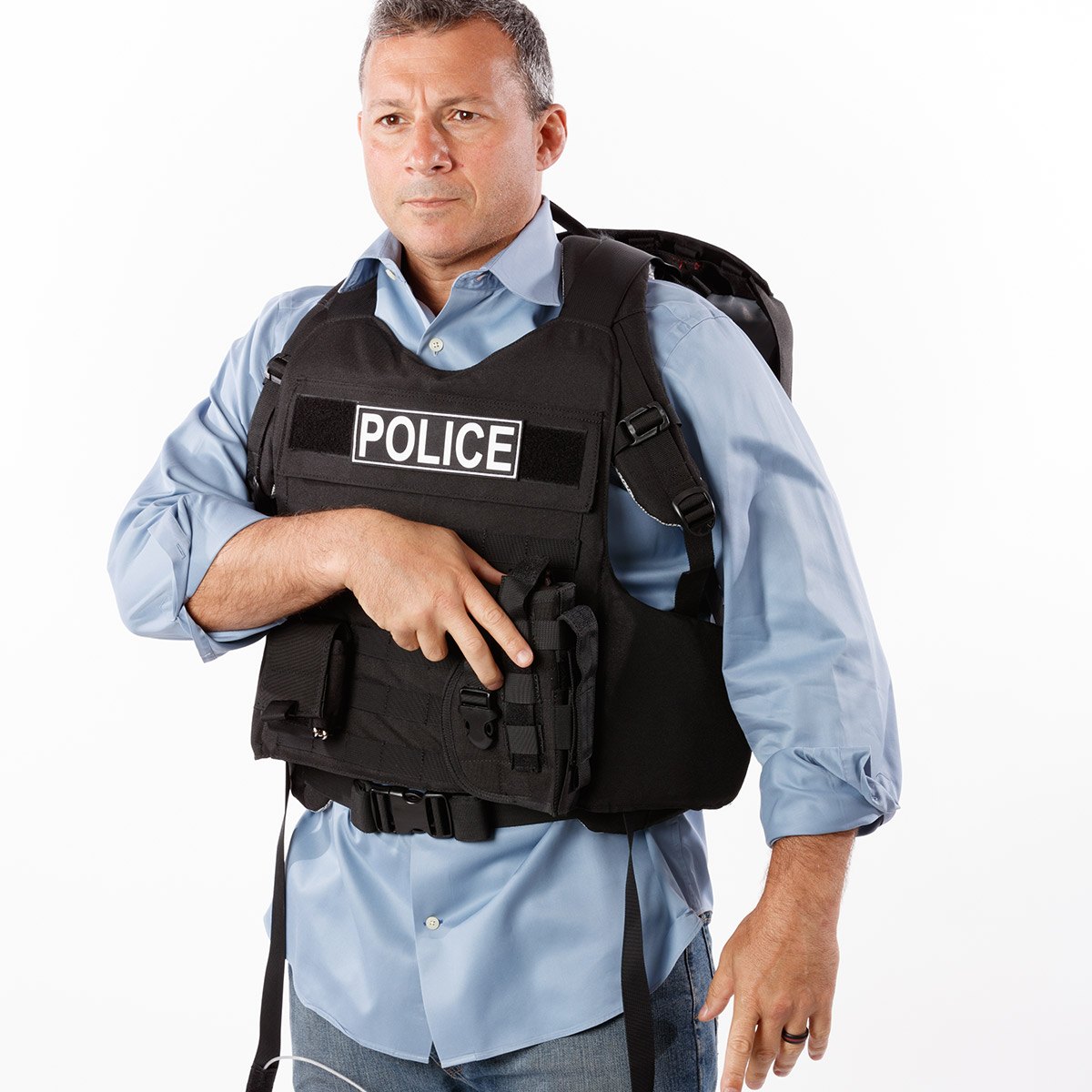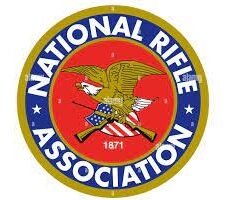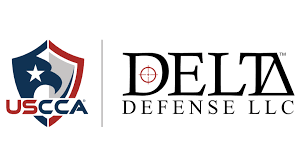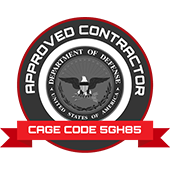This will give you a decent understanding of Body Armor how it works and the different levels of protection.
First, if you want to sound like an “EXPERT” you don’t use the term bulletproof. It’s either body armor or ballistic protection. But we’re not pretentious here – so if you use the term BULLETPROOF (which we do) we know what you mean.
Let’s get some basic questions out of the way…
It is illegal for civilians to own body armor? YES.
Anyone can purchase bulletproof protection…unless you’re a convicted felon. In that case, it is illegal for you to possess body armor of any kind. You should also know that if you commit a crime while wearing body armor, the penalties will be stiffer.
Do you need a permit to purchase body armor? NO.
Anyone can purchase ballistic protection. You do not need a special permit or registration.
Will the blunt force trauma from the bullet injure or kill me? Injure, maybe Kill – NO.
The NIJ maximum standard for how far the force of a bullet can go into a target is 44mm (1.73 inches) maximum. The bullet cannot penetrate or perforate the armor. When they test the armor, it’s mounted in front of modeling clay. The bullet can indent the clay no more than 1.73″.
What does this mean?
For the firearms and ammo, your armor is rated to stop – and depending on where you’re struck in the body – you could be injured…BUT NOT DEAD. You will be able to move and react. Keep in mind, all Bodyguard products have 10% more armor than what’s required.
This brings us you our next question…
Is all body armor the same? NO.
There are ballistic protection standards that are set by the National Institute of Justice (NIJ). The NIJ (National Institute of Justice) is a U.S. government agency that sets these rating standards. The ratings are 2A, 2, 3A, 3, 3+, 4
Level 2a – Stops 9mm and .40 S&W ammunition fired from short barrel handguns. NO RIFLE AMMUNITION PROTECTION. Soft Armor
Level 2 – Stops 9mm and .357 Magnum ammunition fired from short barrel handguns. NO RIFLE AMMUNITION PROTECTION. Soft Armor
Level 3A – Stops .357 SIG and .44 Magnum ammunition from LONGER barrel handguns. NO RIFLE AMMUNITION PROTECTION. Soft Armor
Level 3 – Stops 7.62mm FMJ lead core rifle ammunition. Ballistic Hard Plate (steel and/or ceramic)
Level 3+ Is an “unofficial” rating. It just means the plate will stop some armor-piercing rounds.
Level 4 – Stops .30 cal steel core, armor-piercing rifle ammunition. Ballistic Hard Plate (steel and/or ceramic)
Here’s a great download from the Justice Technology Center that goes into a little more detail.
Understanding-Armor-Protection
*Note on armor plates – if it is a STAND ALONE plate that means it will work by itself, without any additional protection.
If the plate is NOT stand-alone – it means you will need to put it in a level 3A soft armor carrier. Without the extra 3A protection, the plate WILL FAIL.
The big question is….
What armor do you REALLY need?
Law enforcement typically wears Level 3A soft body armor for day-to-day shift work. Some (but not all) have Level 3 or 4 armor plate inserts. The plates cover the area the size of an Ipad and the vest covers the torso.
Military and Tactical Police Units wear plate carriers with Level 3+ or 4 plates that typically cover a little larger area.
As you can guess, the higher the protection, the higher the price – but as a civilian, there are two questions you need to answer:
What protection do I really need and how practical is it to wear?
If you’re not going to wear it – what good is it? You need to think about risk and comfort. If it’s too bulky and too heavy like a plate carrier – there is no way you’re going to wear it often.
And if it’s difficult to put on, you’re not going to wear it either – after all, would you wear a bulletproof vest to commute to work if you had to put it under your shirt or wore it over your clothes? Probably not.
What level of protection do you really need?
According to this 2009 Report published by the California Department of Justice, the types of guns used in the commission of a crime were:
81.6 % Handguns
8.8% Rifles
7.5% Shotguns
2.0% Machine Guns
*Percentages don’t total 100 because of rounding
Next is the list of caliber used by percentage and what level protection you need to stop it.
26% 9mm luger (2A)
11% .40 S&W (2A)
11%.22 rimfire (2A)
10% 380 auto (2A
8% .25 auto (2A)
8% other
7% .45 ACP (3A)
7% 12 guage (2A)
5% 38 special (2A)
4% .32 auto/.32 S&W (2A)
3% .357 magnum (3A)
2% .762 x 39 AR round (3 or 4)
1% .30.30 winchester (4)
1% .223 remington AR round (3 or 4)
Level 2A armor will stop 82% of what you’ll face in the street and you will need it 82% of the time.
Level 3A armor will stop 92% of what you’ll face in the street and you will need it 10% of the time.
Level 3 armor will stop 95% of what you’ll face in the street and you will need it 3% of the time.
Level 4 armor will stop 96% of what you’ll face in the street and you will need it 1% of the time.
*Percentages don’t total 100 because of rounding
Looking at the numbers, SOFT armor (level 2A or 3A) is what most people need.
The practicality of wearing a plate carrier and armor every day is just not that practical.
How practical is it to wear body armor?
First – it’s bulletproof so EXPECT some weight and “bulkiness”. Some designs will restrict movement more than others. Remember you’re sacrificing a little comfort for NOT GETTING SHOT.
Second – vest or jacket?
The reason we chose to do a BODYGUARD Jacket over a vest was simple – ease of use. You’re going to wear the jacket when you’re most vulnerable:
- Commuting to work
- Going to the movies
- At a sporting event or concert
- Shopping at the mall
- Any other situation where you’re in contact with the general public and large crowds
A jacket gives you the ability to put it on and take it off as needed, where a vest requires you to take your shirt off or if you wear it over your shirt – it draws unwanted attention.
Most people want something they can throw on when they need it and take it off when they’re safe.
The author is Damian Ross, founder of the Self Defense Company and in April of 2017 in conjunction with United Defense LTD, an Israeli Military Contractor, he launched BODYGUARD Bulletproof Protection Systems to give real, military-grade, affordable bulletproof protection to civilians.
How the Bodyguard Jacket System Works
Shooting the Bodyguard Tactical Jackets











